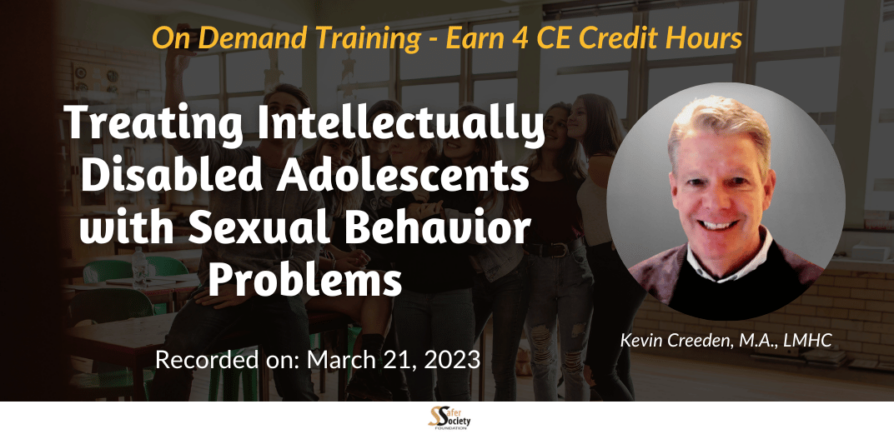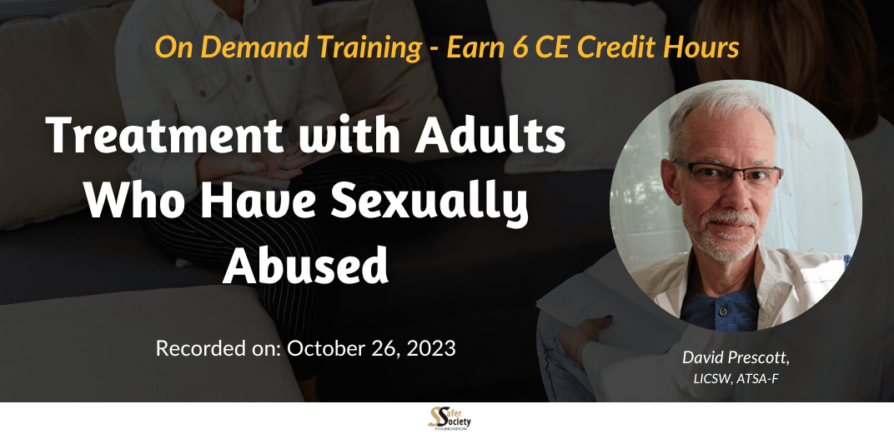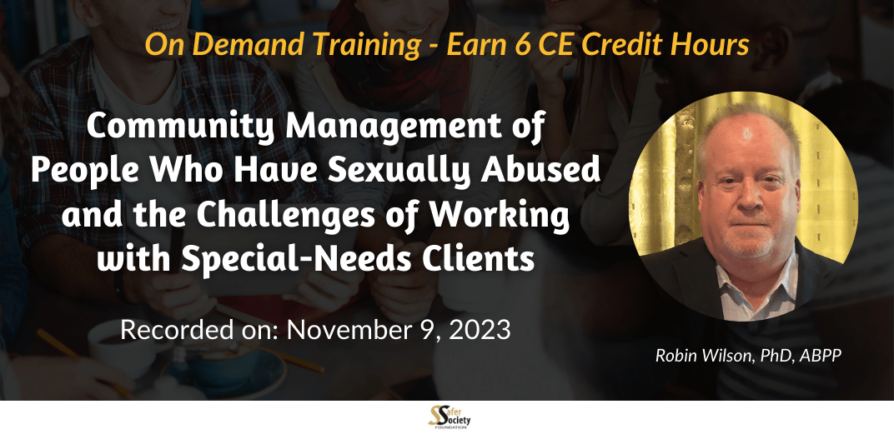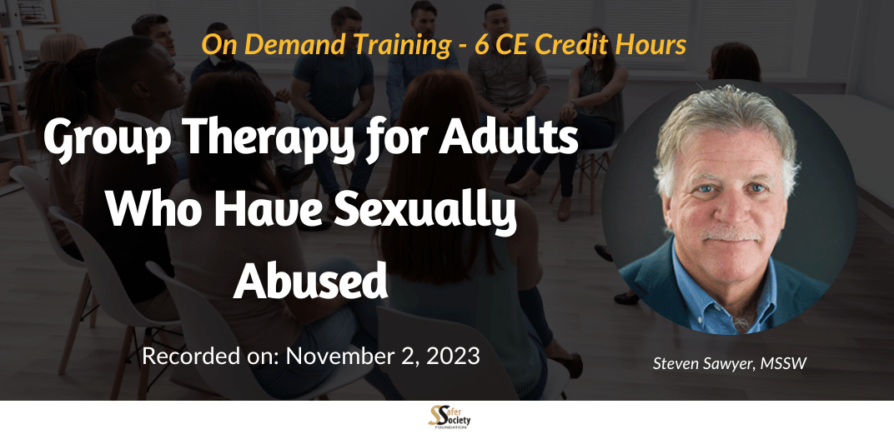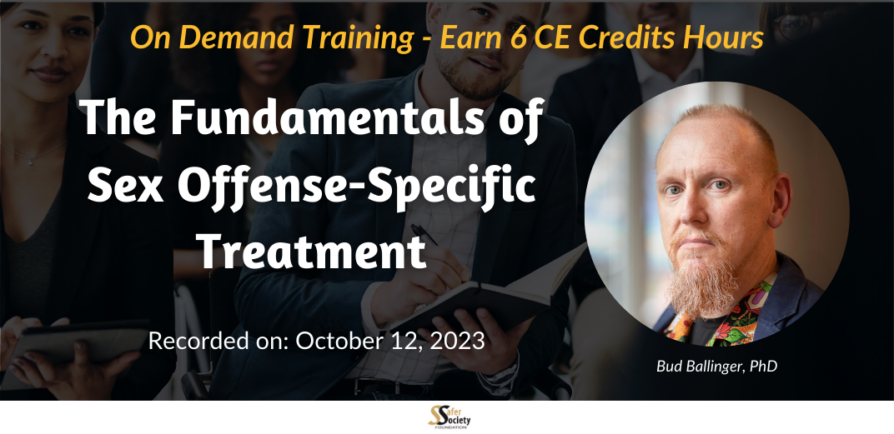This training focuses on the overarching principles associated with the effective assessment and treatment of intellectually disabled youths exhibiting problematic sexual behaviors while identifying specific treatment needs and treatment interventions for some of the different constellations of social, emotional, and cognitive difficulties that may be presented by these youths.
Treatment with Adults Who Have Sexually Abused
This training provides a foundational understanding of treatment for adults who have sexually abused. It is of interest to those who are newer to the field as well as those who wish to develop their existing skills further. It describes the components of effective treatment programming and delivery. It outlines steps for understanding clients in the moment and helping them to find their own motivations and strategies for making changes to their lives. It explores methods (for example, Motivational Interviewing and the Good Lives Model) that function as frameworks that practitioners can use to organize treatment.
Community Management of People Who Have Sexually Abused and the Challenges of Working with Special-Needs Clients
This training provides practical information on two components that often go unexamined: sensible approaches to community management and how to work with clients with special needs.
The first half of this training summarizes and provides information on effective approaches to the community management of sexual violence risk, with a focus on the most current approaches. Policymakers have historically attempted to manage risk by instituting measures of official control, such as sex offender registries, GPS monitoring, and residency restrictions. However, the scientific literature suggests that such measures often don’t accomplish their intended goal. This training will explore
Group Therapy for Adults Who Have Sexually Abused
Providing group therapy requires more skill than many professionals often realize. This training is for professionals who are new to the field as well as more seasoned professionals who want to learn new skills from an established expert.
For many years, group therapy has been the preferred mode of treating adults who had sexually abused, quite simply because it is more efficient—in terms of both time and cost—than individual treatment. Today, however, we know that group treatment is about so much more than treating many clients at once.
How Risk/Need Assessment Informs and Enhances Case Planning
This training provides a foundational understanding of the assessment of risks and treatment needs in preventing general, violent, and sexual re-offense by adults. It is of interest to those who are newer to the field as well as those who wish to develop their existing skills further.
The Fundamentals of Sex Offense-Specific Treatment
Effective sex offense-specific treatment programs consider their participants’ risk for re-offense, the treatment needs that contribute to this risk, and each client’s individualized ability to respond to interventions. It is now standard practice to assess dynamic risk to improve the overall accuracy of risk assessments. This training provides vital information about how treatment providers can help participants understand and address individual dynamic risk factors and to manage sexual impulses and arousal.
Cultural and Language Inclusivity in Adult Psychosexual Evaluations
This workshop focuses on how to incorporate cultural and person-first language considerations into adult Psychosexual Evaluations (PSEs). It provides a brief review of the principles of risk, need, and responsivity, culture-related definitions and concepts, the Hays ADDRESSING framework, and the American Psychological Association’s Inclusive Language Guidelines. This training also addresses intersectionality, consensual non-monogamy, and kink culture. It offers strategies for preparing evaluations, selecting appropriate tools, interviewing, scoring, and report writing. Anonymized and fictional case examples will be discussed. Questions and case examples are highly encouraged.
